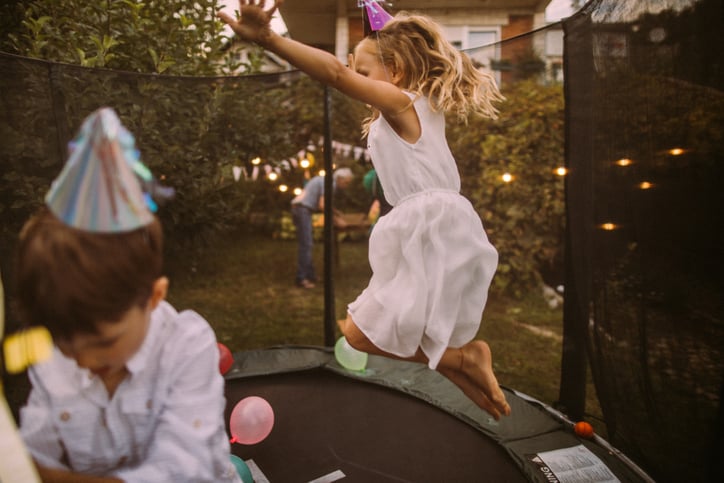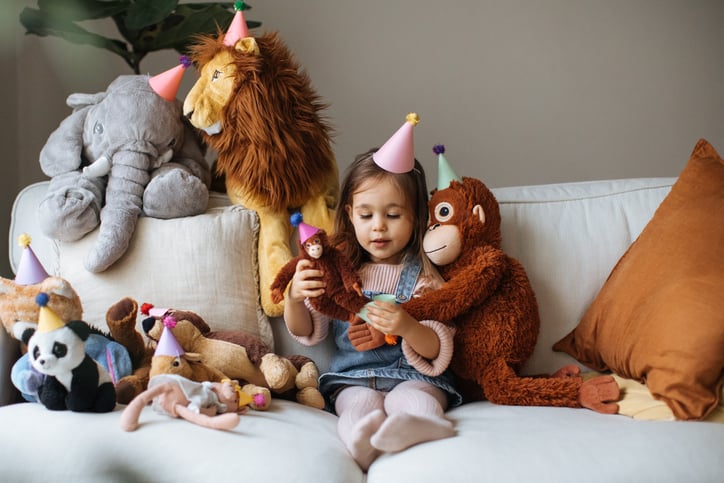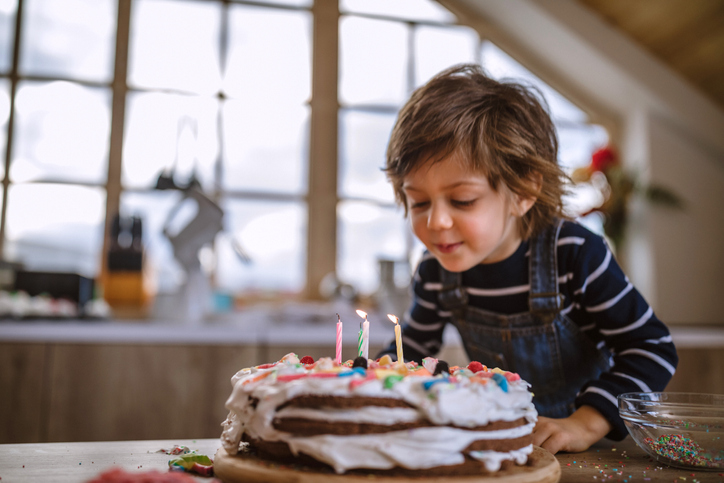Planning a Celebration for Your Child With Autism
Imagine a party with music that’s just too loud–or a concert that keeps shining the same bright spotlight directly into your eyes. What if you felt trapped inside an overcrowded venue with people you don’t know surrounding you on every side? This is how children with autism can feel during parties, celebrations, concerts, and other special events. As a result, it is imperative to consider their needs when planning and attending large gatherings.
While many celebratory events take place throughout the year–including holidays, birthdays, and other seasonal festivities–those on the autism spectrum may benefit from modifications to these gatherings. Sensory components should be kept in mind when attending and planning for celebrations because bright lights, loud noises, certain fabrics, textures, flavors, and strong smells can be overstimulating. Therefore, these considerations should be taken into account when planning or attending a party.
If your autistic child is invited as a party guest, it can be helpful to notify the event host ahead of time regarding any modifications or adaptations that may be helpful for your child to attend the party. This can be done at the time the RSVP is made, and you should notify the host about any activities your child may not participate in for sensory reasons. It can also be beneficial to request to stay to assist your child with any behavioral challenges or sensory sensitivities that arise during the celebration.
When planning a party or celebration for your child on the autism spectrum, there are several other tips that can be helpful to keep in mind. 1&2 Strategies for successful party planning include:
- Keeping the guest list short
- Choosing a location your child is familiar with
- Planning sensory-friendly activities
- Selecting a theme your child enjoys
- Considering the party length and asking for help
- Serving appropriate snacks and making other sensory-friendly selections
- Providing breaks and downtime as needed
- Creating a backup plan and focusing on celebrating your child

1. Be strategic with the guest list and keep it on the smaller side.
Children on the autism spectrum can become easily overstimulated by large crowds of people. With this in mind, planning a smaller party and inviting only a few guests that the child knows well is often beneficial. The guest list could include close family members, friends from school, and peers from extracurricular activities that your child enjoys participating in.
2. Consider using a location or venue that your child is familiar with.
Familiarity tends to provide comfort to those on the autism spectrum and changes in routine can cause distress. When planning a party, choose an environment that your child is comfortable in–such as your home, the library, or your child’s favorite park.2 Other venues may have autism-friendly options available, so call around to determine what options exist. If your child enjoys trampoline parks, jumpy places, or arcade games, consider hosting a party at one of those locations.
3. Plan for enjoyable activities that are sensory-friendly.
Sensory-friendly activities are an important consideration to keep in mind when planning a party for a child with autism. Simple sensory-friendly activity ideas include: 3
- Blowing bubbles
- Creating sensory bins (with sand, playdough, slime, shaving cream, shredded paper, water beads, dry rice, and other fun textures)
- Making sensory bottles with oil, water, glitter, or small beads
- Dancing, doing yoga, or having silent disco (where music is listened to through headphones rather than broadcasted directly through loudspeakers)
- Considering dim lighting and refraining from the use of fluorescent lights, especially if your child is sensitive to them
- Providing puzzles, legos, quiet activities, crafts, or a petting zoo to engage your child and guests on a special day
- Cooking or baking a favorite recipe
Each of these activities can be an engaging way to get everyone involved during the party!
4. Choose a theme or special interest that your child likes.
The theme of a party is an important component to consider when planning a special event or celebration for your child with autism.4 Ask them what their favorite character, TV show, or movie is and plan the party around that theme. If you have trouble identifying a theme that your child enjoys, stores like Party City have aisles with many different themes and activities to choose from. This can assist in the planning process by sparking creativity around fun options.

5. Keep it short and ask for help with planning, setting up, and tearing down.
Consider keeping the party short, especially if your child typically loses interest in activities quickly. Planning on 2-3 hours is usually a good time frame and having backup activities on hand is a good strategy as well. Don’t be afraid to ask family and friends for help with planning, setting up, and tearing down before and after the special event.
6. Serve food or snacks that your child enjoys and consider sensory components like lights, sounds, smells, tastes, textures, and scents.
One way to focus on celebrating your child well is by having food, treats, and snacks they enjoy at the party. Take your child to the store and allow them to pick out some of their favorite snacks. Alternatively, consider offering to make their favorite cake, dessert, or treat for the special occasion. If your child doesn’t enjoy having attention directed at them, refrain from singing “Happy Birthday” and lighting candles on the cake. Instead, focus on activities your child enjoys (such as puzzles, games, or crafts), and keep sensory components of the event in mind.3 As a general rule of thumb, aim to keep lights, sounds, and strong smells to a minimum–particularly if your child or any of the guests are sensitive to sensory stimulation and can become easily overwhelmed.
7. Provide breaks and downtime from stimulating activities if needed.
There is no shame in providing a break room, sensory room, or quiet room for your child or guests to retreat to during the celebration. If you notice your child beginning to show signs of distress, frustration, or overstimulation, having a calming environment that they can go to for a little while can be helpful to prevent the situation from progressing into a full-blown meltdown.
8. Create a backup plan and focus on celebrating your child in a way they enjoy.
It is important to have a backup plan in mind in the event that the party cannot take place as originally planned.4 If the party is arranged to be held at your child’s favorite park, for example, consider having indoor activities scheduled at a separate location if it rains on the day of the party. Be sure to explain any alternate plans to your child and the guests so that they understand what to expect if the original plans fall through. Finally, focus on celebrating your child in a way they enjoy. Some children like being the center of attention while others do not. Keep this in mind as you make plans for your child’s special day.

Each of the suggestions above can be a helpful way to plan for a celebration that your child will enjoy while also considering any necessary adaptations or modifications that can be made to set your child–as well as the event–up for success. At the end of the day, focus on making everything as fun as possible for all involved!
What are some other considerations when planning for an autism-friendly party?
References
- https://www.friendshipcircle.org/blog/2012/04/24/6-tips-for-planning-an-autism-friendly-birthday-party/
- https://www.goldencaretherapy.com/5-tips-for-an-awesome-autism-friendly-birthday-party/
- https://www.autismparentingmagazine.com/planning-parties-autism-kids/
- https://www.sensoryfriendly.net/sensory-friendly-birthday/
For additional tips about preparing your child for an upcoming celebration, check out our free downloadable handout here!

Kenna McEvoy
Kenna has a background working with children on the autism spectrum and enjoys supporting, encouraging, and motivating others to reach their full potential. She holds a bachelor's degree with graduate-level coursework in applied behavior analysis and autism spectrum disorders. During her experience as a direct therapist for children on the autism spectrum, she developed a passion for advocating for the health and well-being of those she serves in the areas of behavior change, parenting, education, and medical/mental health.




